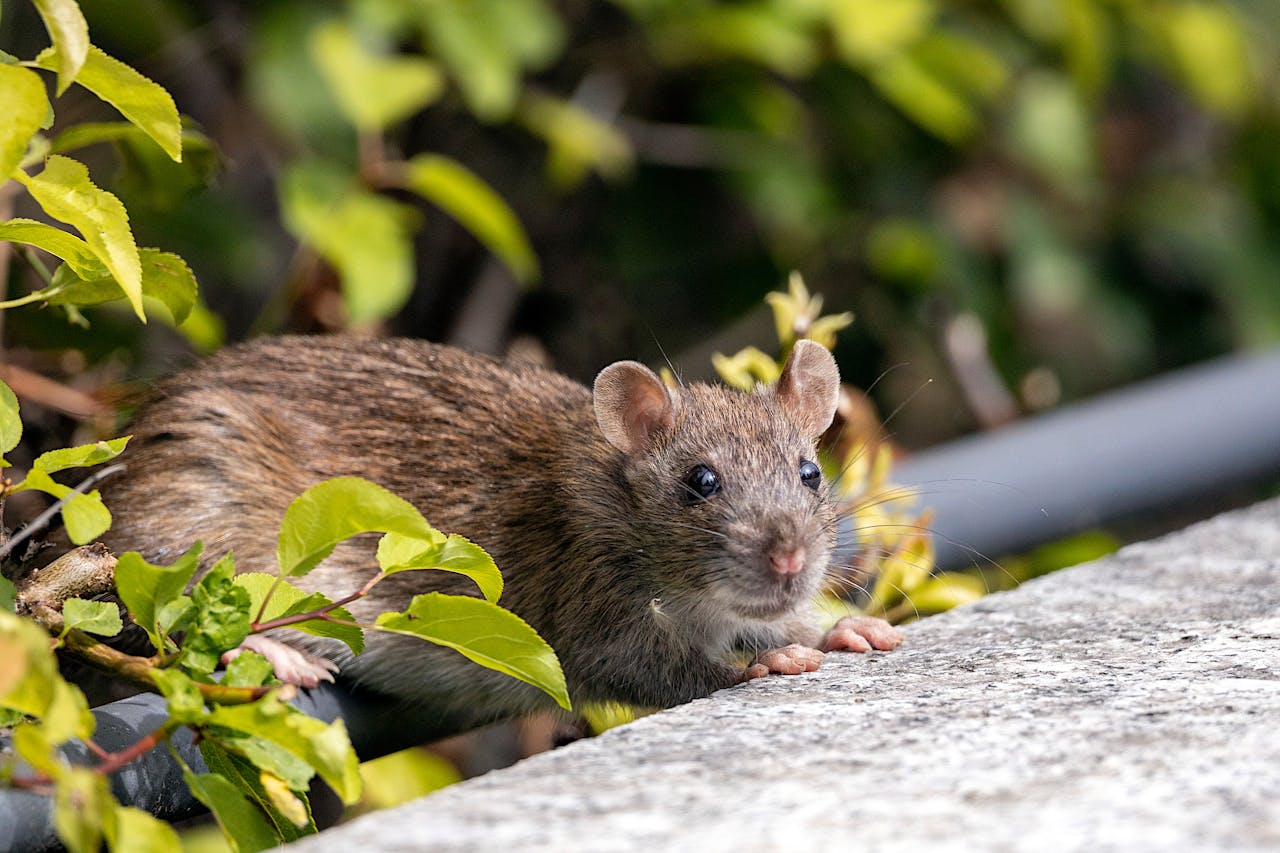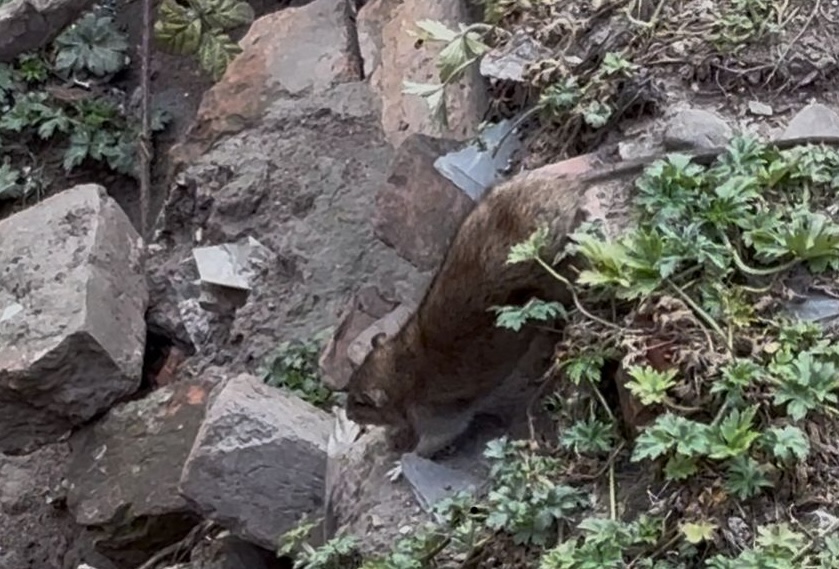Gardens are a common place to find a variety of wildlife, including stunning garden birds and even, on occasion, foxes, badgers and other animals.
One pest you don’t want to see in your garden is a rat. Rats carry a range of diseases and are incredibly destructive if they make their way into your shed or, even worse, your home.
While seeing one rat in your garden isn’t necessarily a sign of a significant rat problem, it is definitely cause for alarm. Rats are highly territorial and once they find somewhere comfortable, they will build burrows and may start looking for ways to get inside your home for shelter and to find food.
As leading experts in rat control across Rochdale, Bolton, Bury, Oldham, Huddersfield and the surrounding area, Arrow Pest Management understands how hard it can be to deal with rats in your garden.
That’s why we’ve put together this handy guide to rats in your garden, discussing the dangers, damage caused and how to prevent rats from getting into your space.
What Attracts Rats To Your Garden?
Like most pests, rats seek out shelter, food and water sources. As such, some of the common reasons rats are attracted to your garden include:
- Easy Access: If they find entry points, such as holes in fences, or if the fences are weak and easy to chew to create rat holes, rodents will quickly enter your space in search of food and shelter.
- Shelter: While rats can dig burrows, they seek out warm areas, such as garden sheds or compost heaps, as well as sources of nesting materials such as leaf piles.
- Food Sources: Rats eat almost anything, and will look for areas with a lot of food such as unattended pet food, human food scraps, bird seed, or fallen fruit from trees.
- Clean Water: Water is also important for bathing and drinking, so rats will look for water sources such as bird baths, dripping taps and ponds.
- Other Rats: Once one rat has entered your garden, it will leave behind a pheromone trail for other rats to follow.
Issues Caused By Garden Rats
Unlike other wildlife, rats can cause significant damage and pose a health risk to you, your family and pets. Some problems caused by having rats in your garden include:
- Health Hazards: Rats spread diseases to humans including Leptospirosis (Weil’s disease), Hantavirus and Salmonellosis.
- Parasites: As well as diseases, rats also carry parasites such as fleas, which can spread to pets or into your home.
- Property Damage: Rats can cause serious damage to your property, especially if they try to get inside your home, as they chew regularly and can bite through drain pipes, live wires and parts of your home’s structure.
- Fire Risk: If rats get inside your property or gain access to live wires outside, they may chew through them and cause a fire.
- Disturbance: As large rodent pests, rats can cause a significant noise disturbance, especially if they gain access to your roof or get inside your home.
Signs You Have Rats In Your Garden
Being large rodents, rats are easy to see. Still, it can sometimes be difficult to notice rats, especially if you have a lot of overgrown areas. Other tell-tale signs of rats in your garden include:
- Droppings: Rat droppings are 1-2 cm and dark brown to black in colour, with tapered ends that make them look like large, dark grains of rice.
- Gnaw Marks: Because rats’ teeth grown continuously, they have to chew regularly to keep them from getting too long, so look for gnaw marks in shed doors, walls, tree trunks, garden furniture and other objects.
- Burrows: Rats love to dig, and will build burrows that look like small holes in the ground, usually near food or water sources.
- Footprints Or Rat Runs: Rats have four-toed front feet and five-toed back feet, and may leave footprints in mud or dirt, as well as large sections of trampled grass as they run through it, which are known as rat runs.
- Distressed Pets: If you have pets, such as dogs or cats, then you might notice them focusing on a certain area of your garden, as they may smell or see rats.
How To Keep Rats Out Of Your Garden
While it is impossible to fully keep rats out of your garden, since it’s an outside space, there are some ways you can deter rats and reduce the chances of them coming to your garden.
- Block Potential Entry Points: Holes in fences, gates, shed doors and other areas that rats can use to access your garden should be filled in using wire to prevent rats from chewing their way back inside.
- Move Items Around: Rats are naturally neophobic, meaning they are scared of new objects, so if you rearrange your garden furniture and pot plants regularly, this can deter rats.
- Remove Potential Food Sources: Outdoor food storage areas, bins and bird feeders should be kept secure to stop rats from getting access to food.
- Keep Vegetation Trimmed: Overgrown areas offer great hiding spots for rats, so make sure you cut back grass and hedges regularly.
While there are other DIY methods you can use to prevent rodents from entering your space, such as planting mint, these are the most effective solutions. Also, while cats are natural predators of rats and other rodents, it’s important to note that many cats aren’t very good rat catchers, and may harm other wildlife or cause other issues. As such, while cats can deter rats, they’re not an ideal alternative to professional pest control if you have rats in your garden.
Get Rid Of Rats Fast With Arrow Pest Management
While these tips will help you to reduce your chances of rats getting into your garden, if you find yourself facing a large rat infestation, particularly one that has already entered your property, you need professional rodent control.
Fortunately, Arrow Pest Management has the expertise needed to remove rats, as well as other rodents such as mice and squirrels, from homes and business premises across Rochdale and the Greater Manchester area.
If you’re ready to start controlling rats and protecting your home, garden and local environment from these irritating rodent pests, then contact us on 01706 375 803 or by emailing marc@arrowpestmanagement.co.uk.














